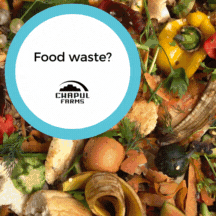
Chapul Farms designs, builds, and operates modular insect farms that turn organic waste into high-value animal feed and fertilizer products. The future of closed-loop agriculture starts here.
Problem: Planet Earth is currently losing biodiversity and trending towards an inhospitable habitat for humans.
Chapul Farms Solution: Change the direction of biodiversity loss on planet earth by weaving insects into the current agricultural and energy infrastructure.
Why: Insects can intersect net-loss energy systems and convert them to net-positive biologic and economic gains
How: Chapul creates insect habitats within agri-systems, supported by economic growth from insect-based markets.
Chapul Farms ‘ mission is to develop commercial insect facilities that advance key environmental impact goals toward sustainable (net-zero) and regenerative (net positive) initiatives, including the health of homo sapiens communities. Chapul develops economic incentives for human actions to expedite the development of insect habitats within agri-systems.
Strategy: Chapul fosters deep human connections to build community insect projects highlight by excellence in execution.
Read about our mission
FAQ
What's the investment opportunity?
-
Chapul Farms is an insect agriculture project development company that designs, builds, and operates commercial scale Black Soldier Fly Larvae (BSFL) facilities.
-
After a successful Seed Round with investors including Nexus PMG, Mark Cuban, and Kind Bar's Daniel Lubetzky, Chapul is inviting interested funders to support our company.
-
Chapul Farms' next fundraising round will be used to begin construction on it's first at-scale commercial facility of its > $1B project pipeline, invest in new research and development opportunities, and sales and marketing growth within the multi-$B opportunity of insect agriculture.

What's the impact?
-
A single insect facility processing organic waste has the potential to save 7M metric tons of GHGs each year. For comparison, that's more than 70k homes converting to solar. Eventually, our total project pipeline has the potential to divert 150M metric tons of GHG per year.
-
Reducing food waste was found to be the most pressing solution amid a long list of action items to combat the effects of climate change by Project Drawdown. It's just one of the benefits of our business, which you can read more about in our white paper.
Why was this link sent to you?
-
Our experience at Chapul - from aligning project stakeholders to successful previous fundraises - reinforces our belief that cooperation outpaces competition. By aligning incentives, we can work together to reverse the environmental trends toward extinction and make it profitable.
-
With your help, we can break ground on our first facility without waiting for government tax credits or other traditional sources of capital.
-
If you want to stop worrying about climate change and fix it instead, this page has found it's audience.

"Ok I'm Interested, but I'm new here. What's the *bug* deal?"
-
Chapul Farms is solving the organic waste crisis with a winning business model. We sell custom insect farms to existing agricultural businesses, where insects consume the waste on-site. These facilities generate products to sell into multi-billion dollar markets like animal feed ingredients (insect larvae are natural food for chickens, fish, and pets) and soil bio-fertilizers (insect manure or “frass” stands to revolutionize soil health).
-
Your investment will support breaking ground on the first Chapul Farms facility, which, only counting GHGs avoided by diverting organics waste from landfills, has the potential to divert 7M metric tons GHGs/yr (that's ONE facility; our pipeline is >$1B in capex).
-
This invite is for you if you if you understand that "sustainable" means doing more with less (and doesn't mean "bad business").
"Can you give me some sound-bites to use in discussion?"
-
Invest in Chapul Farms if you want to:
-
Feed insects instead of landfills.
-
Build infrastructure that regenerates soil instead of depleting it.
-
Create revenue streams for farmers instead of waste.
-
Help fix this planet instead of racing to Mars.
-
-
Overwhelmed with data about which climate tech provides the most bang for your buck? ESG metrics, investments into carbon-capturing concrete, or even genetically edited corn won't mean *frass* unless we fix our fundamentals. We must close the loop.
-
Nature gave us the solution millions of years ago: Insects. While other great companies are writing headlines about how “plant-based proteins” or “carbon-capture concrete” will save the world – we're hard at work restoring the planet using its very own design.
-
These waste-to-value machines upcycle nutrients into products that can be sold into >$B markets ($550B animal feed, $160B fertilizer), replenish soil health, and so much more.

Who is Chapul Farms?
-
Chapul Farms is led by insect agriculture industry leaders. Chapul's CEO was elected again this year as the chair of the board for the National Science Foundation's Center for Environmental Sustainability. We're unique in our partnership with Nexus PMG's experienced project engineering team. And we've built a project pipeline of over >$1B capex and opportunities for outsized returns. (You'll learn more at the Chapul Chat.)
If this solution is so perfect, why haven't I heard of it before?
-
You have. Insects are already doing their job in natural ecosystems. This solution is already working at a variety of scales - on farms, in forests, and in trash cans where larvae do their work.
-
Thought-leaders like McKinsey & Co have left insects completely out of their charts and lists of "climate-critical solutions" (how can you talk about alt protein fish feed ingredients without mentioning insects?)
-
But here's part of the reason why: insects cannot be owned by a central "market creator." The ecosystem services insects provide also reduce reliance on products like synthetic fertilizers, antibiotics, and ultra-processed feed ingredients.
-
Insect "technology" is already working in nature. It's sophisticated and complex (in ways that make it hard to model into E.S.G. reports without being reductionist or greenwashing), but also very simple in the common-sense observation that this solution is already working in nature.


